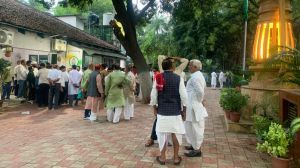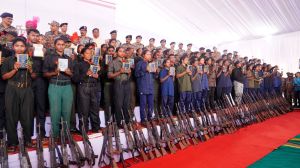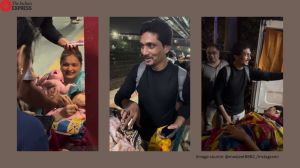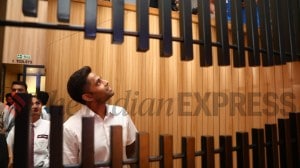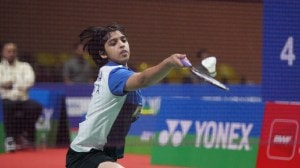Death of Allarakha’s daughter, Razia, raises questions
MUMBAI, FEBRUARY 5: It was a simple cataract operation that Razia Hussain Abrar, daughter of tabla maestro Ustad Allarakha had gone in for...

MUMBAI, FEBRUARY 5: It was a simple cataract operation that Razia Hussain Abrar, daughter of tabla maestro Ustad Allarakha had gone in for and should have been out of the operation theatre in all of twenty minutes. But a last-minute bout of nerves on the part of Razia and perhaps an avoidable change in surgery plans led to complications that took her life away — and that of the Ustad a few hours later from the shock and grief.
It now transpires that Razia was admitted to a well-known South Mumbai eye clinic on Wednesday and scheduled for surgery in the morning. As per usual practice, the patient was put on local anaesthesia and the surgery equipment — known as eye towel — mounted on her face to carry out the procedure. The towel covers the face but has a hole to allow the patients to see from the normal eye and one more for them to breathe. And since patients are conscious during local anaesthesia, it is not uncommon for some to develop claustrophobia. Razia was one such.
In panic she ripped off thetowel and sat up on the bed and refused to undergo the procedure. Under such circumstances, surgeries are generally postponed. But doctors at this clinic decided to put Razia under general anaesthesia and rescheduled the surgery for the afternoon. Though the operation, which lasted for about 20 minutes went off well, Razai suddenly developed breathlessness and collapsed on the operation table itself. She was rushed to Bombay Hospital, but was declared dead on arrival, and the body was shifted to GT Hospital for a post-mortem.
Preliminary `cause of death’ reports have noted the presence of food particles in her wind pipe suggesting she was not on empty stomach when she went for operation. It is mandatory that the patient be on empty stomach for an operation under general anesthesia so that there is no risk of food getting “aspirated” into the lungs. Also, evidence of fluid in the lungs, known as pulmonary edema, furthers indicates the patient had probably aspirated the food particles into the lungs. It isto avoid such risks that normally surgery is postponed to another day when a cataract patienton local anaethesia develops nerves.
A senior expert at JJ Hospital said the presence of food particles in the wind pipe indicates the stomach contents came up to the larynx and then got aspirated.
“The presence of even a few food particles in the windpipe can lead to a severe spasm in the respiratory tract and can lead to death,” he explained. In a normal person, when any particle tries to enter the windpipe, it is coughed out in a reflex action. But this reflex action is absent in a person who is under general anaesthesia. The presence of pulmonary edema shows `respiratory distress’ in the patient,” he said.
The doctor who performed the procedure confirmed that the patient had become uncooperative when the eye towel was put on and therefore the procedure had to be abandoned. He claimed that the surgery on general anaesthesia was performed the same day only because Razia wanted it that way. He said that asufficient time interval was given before starting the operation so that there was no risk of the patient aspirating the food particles. He admitted that there was evidence of pulmonary edema but denied the presence of food particles in the wind pipe.
He claimed the procedure itself was done with the latest `phaco emulsification’ technique and insisted it was definitely not a case of medical negligence.
The matter is now being investigated by Azad Maidan police station. Inspector Kaisar Ahmed said that they are waiting for the cause of death and had sent the organs for a histopathology and chemical analysis.






- 01
- 02
- 03
- 04
- 05








